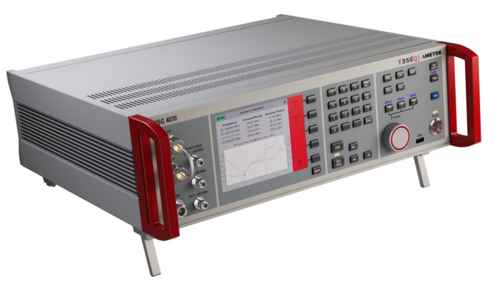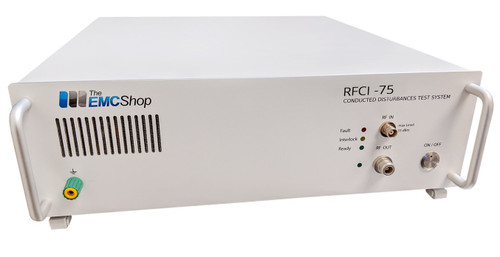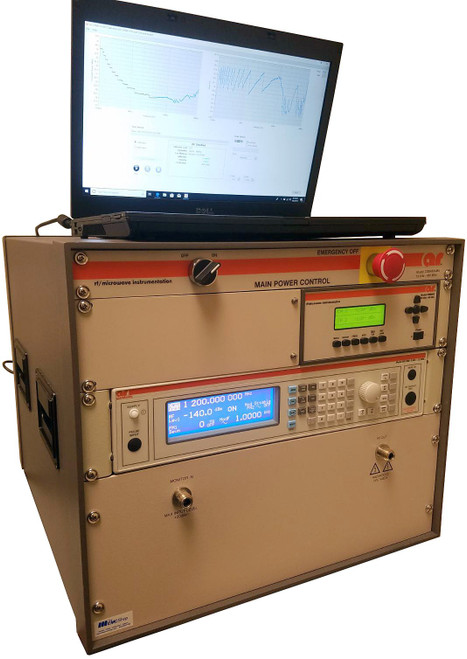The EMC Shop stocks radio frequency test generators for conducted immunity testing with couplers for power or data lines. ISO 17025 accredited calibrations can be performed in 1-2 business days.
Teseq/Ametek CTS NSG 4070D RF Test Generator
SKU: 10549
Standards Met:
IEC 61000-4-6, MIL-461 CS114, ISO 11452-4, DO-160 Section 20 Conducted Susceptibility
Applications:
Bulk Current Injection Testing, RF Conducted Immunity
Internal Amplifiers:
50 or 100 Watts (or none)
System Frequency Range:
4 kHz - 1 GHz
Internal Amp Frequencies:
150 kHz to 230 MHz or 4 kHz to 400 MHz
Typically In Stock












